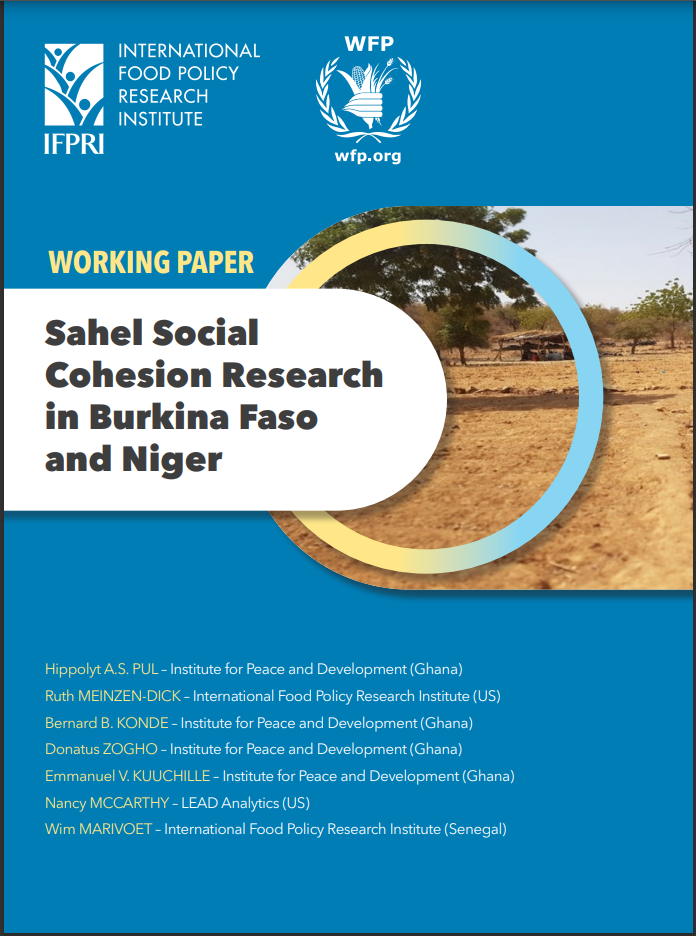
Sahel Social Cohesion Research in Burkina Faso and Niger: Working Paper
Intervention Context: Study Context WFP’s activities in Burkina Faso and Niger focus on fragile agrarian communities in the Sahel, where cyclical floods and droughts combine with decreasing soil fertility and increasing desertification, among other challenges, to aggravate food and livelihood insecurity. Increased competition for land for food crops and pastures as well as water for domestic, productive, and livestock use, intensify conflicts over ownership and usage rights for land and the commons such as forests. in particular, this competition has heightened conflicts between farmers and herders. Layered on these localized conflicts are recent increases in human safety and security concerns related to the spread of attacks by violent extremist groups across the eastern flanks of both countries. The increasing frequency and intensity of these attacks have led to the loss of lives, property, and the displacement of large groups of people. The attendant deepening of food, livelihood, and human insecurities has contributed to a rural exodus of men and women to cities and other economic enclaves in search of alternate sources of food and income. The arrival of displaced persons fleeing the attacks has increased pressure on already limited food stocks and other assets of host communities. COVID-19 added another layer of vulnerability. In addition to the disease burden, lockdowns and restrictions on the movement of persons affected the ability of communities to travel to engage in nonfarm economic activities for supplementary income and food. This greatly affected the food and livelihood security systems of the populations in these already impoverished and fragile communities.
The purpose of this study was to "…investigate and identify the precise programming nuances and conditions under which social cohesion within communities is likely to be strengthened while unintended tensions and new sources of conflict can be avoided" (WFP,2021, ToR, p. 2). Specific lines of inquiry were as follows: How do WFP activities i) increase the availability of and more equitable access to natural resources across socioeconomic and demographic identity lines; ii) facilitate intra- and intercommunity dialogues that improve communal management of natural resources; iii) improve equity in the distribution and use of rehabilitated and created assets; and iv) contribute to the development of good practises that can be replicated in other settings?